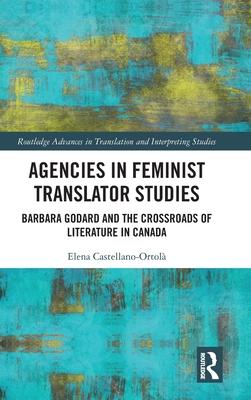This book sets out a new framework for a feminist history of translators, drawing on the legacy of Canadian scholar Barbara Godard and her work in establishing the Canadian literary landscape as a means of exploring agency in feminist translation studies and its implications for cross-disciplinary debates.
The volume is organised in three sections, establishing feminist translator studies as its own approach, examining these dynamics at work in a comprehensive portrait of Barbara Godard’s scholarly and literary history, and looking ahead to future directions. In situating the discussion on Godard and Canadian literary history, Elena Castellano calls attention to a geographic context in which translation and its practice has been at the heart of debates around national identity and intersected with the rise of feminism and feminist literary scholarship. The book demonstrates how an in-depth exploration of the agency of an individual stakeholder, whose activities spanned diverse communities and oft conflicting interests, can engage in key questions at the intersection of nation-making, translation, and feminism, paving the way for future research and the further development of feminist translator studies as methodological framework.
This book will be of interest to scholars in translation studies, feminist literature, cultural history, and Canadian literature.










